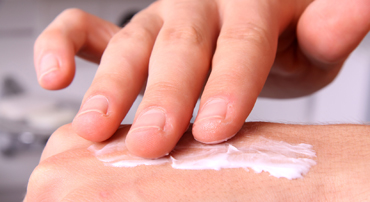Hydrocolloid Technology
Scapa Soft-Pro® Hydrocolloid technology is a type of medical adhesive that contains gel-forming agents, ideal for acute and chronic wounds, ostomy and med device fixation.
learn moreWe are the strategic healthcare and consumer medical device outsource partner you can trust. We collaborate with top global medtech companies to design, develop and manufacture innovative skin-friendly fixation and skin care topical solutions for advanced wound care, consumer wellness and medical device fixation applications. Our competencies include:
.jpg?sfvrsn=b5ae7ed7_2)
Scapa Soft-Pro® Hydrocolloid technology is a type of medical adhesive that contains gel-forming agents, ideal for acute and chronic wounds, ostomy and med device fixation.
learn more
Custom topical wound care solutions and consumer skin care products with the optimal dosage levels of active ingredients and raw materials to achieve premium results.
Learn more
We provide Gamma irradiation services for a variety of medical devices, pharmaceutical and consumable products of different densities, dose requirements and material composition.
learn more
We understand the complexities of wound and ostomy management and all stages of the healing process. Our broad range of technologies and capabilities allow us to deliver unique wound care, ostomy and skin topical solutions to enhance people's.quality of life.
learn more
Today's consumers are looking for products that allow them to address their unique personal care needs from the comfort of their own home. We partner with leading companies to create innovative solutions to address consumers' unmet needs.
learn moreChronic diseases and new lifestyles have led to the adoption of wearable devices to manage overall health with real-time data. Our expertise in medical-grade skin adhesives and advanced materials allow us to develop custom fixation solutions to meet specific end user requirements.
learn moreMore people are diagnosed with skin cancer each year in the U.S. than all other cancers combined. In fact, one in five Americans will develop skin cancer in their lifetime, according to the National Council on Skin Cancer Prevention. The overwhelming majority of melanoma and non-melanoma skin cancers are caused by exposure to the sun. Regular daily use of an SPF 15 or higher sunscreen significantly reduces the risk of developing skin cancer. When developing topicals to protect the skin from the damaging rays of the sun, it’s important to choose a formulation partner that understands the science and ingredients to incorporate and create products that are both safe and effective for consumers.
While protection against UVB rays alone may help reduce the risk of some skin cancers, skin care products that offer more comprehensive protection are far more effective. Broad spectrum sunscreens that protect the skin from both UVA and UVB rays offer a better safeguard against sun damage and skin cancer, as UVA rays penetrate skin deeper than UVB rays and have been shown to play a significant role in the in the development of skin cancers.
However, UV rays are not the only environmental cause of skin damage and skin cancer. In fact, of the three relevant ranges of the solar radiation spectrum, UV radiation makes up just over 8%, while infrared radiation (IR) makes up 49.4% of visible light (VIS) accounts for 42.3% of the total solar radiation,according to research. VIS and IR light rays have been shown to penetrate even deeper in the skin than UV rays, affecting the skin’s health – possibly leading to an increased risk of skin cancer, as well as advancing premature aging.
VIS light – which is all around us at any given time – has been associated with generating free radicals and leading to oxidative stress, which causes skin cells to produce enzymes that break down the collagen and elastin and look older prematurely. In particular, violet-blue high energy visible (HEV) light, has been demonstrated to be especially damaging. Although solar radiation from the sun does account for a large amount of VIS and IR light (including HEV light), even avoiding sun exposure does not fully protect against them. Artificial lights sources like LED bulbs and electronic devices such as smart phones, laptops, TV screens, computer monitors emit comparable amounts of HEV light. This is a startling fact, considering the average person spends more than eleven hours in front of a digital display or TV screen daily.
Products that contain antioxidants such as combinations of Licochalcone A and Glycyrrhetinic Acid, for example, have been shown to help prevent the damage caused by free radicals and to protect skin cells in the deeper epidermal layers from light damage. These products not only block UV and HEV rays, but also other environmental pollutants and nanoparticles commonly associated with skin damage. Scapa Healthcare is a topical formulation contract partner that has the expertise and capabilities to formulate skin care products that offer total light protection.
Leave a comment